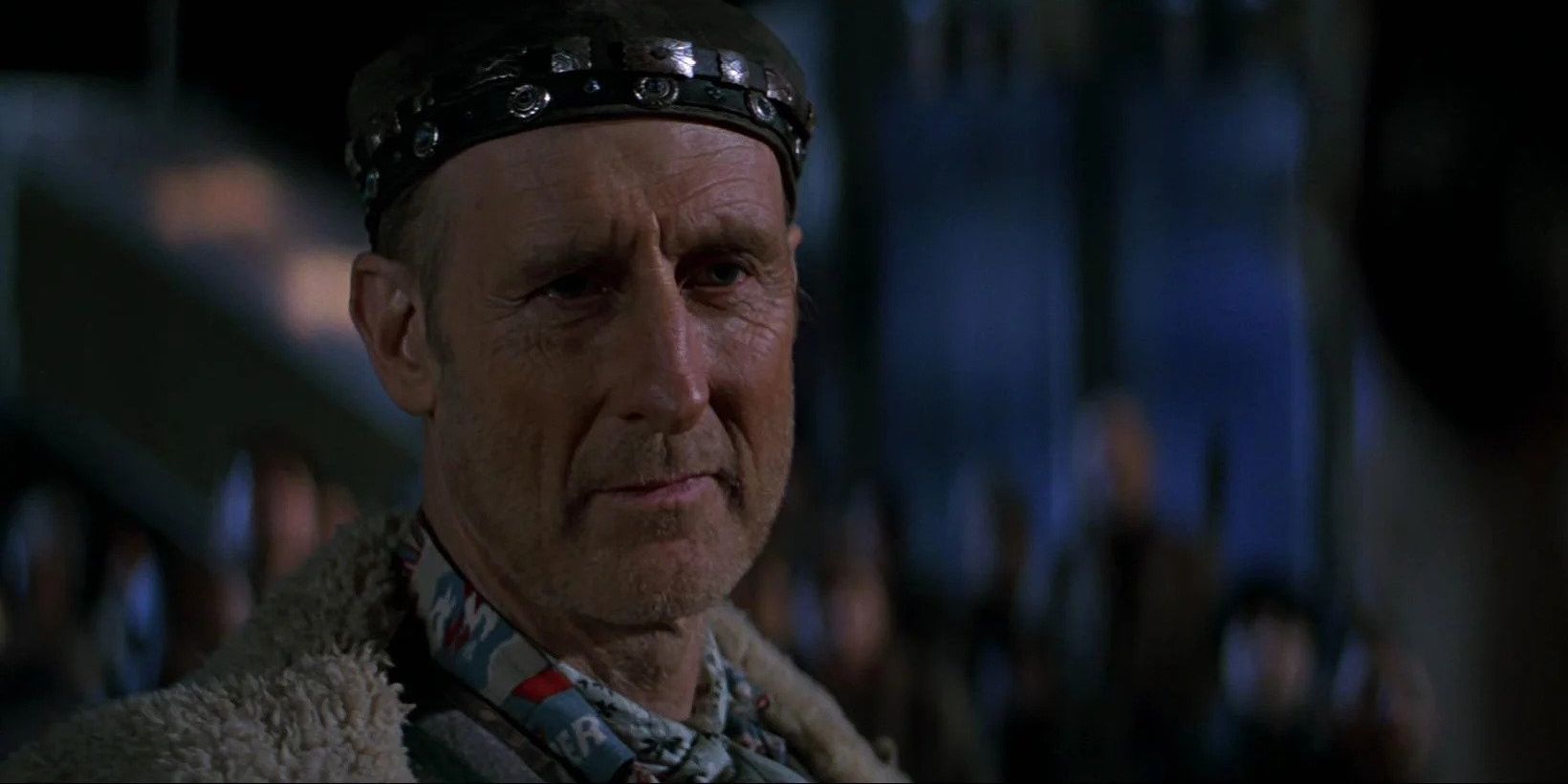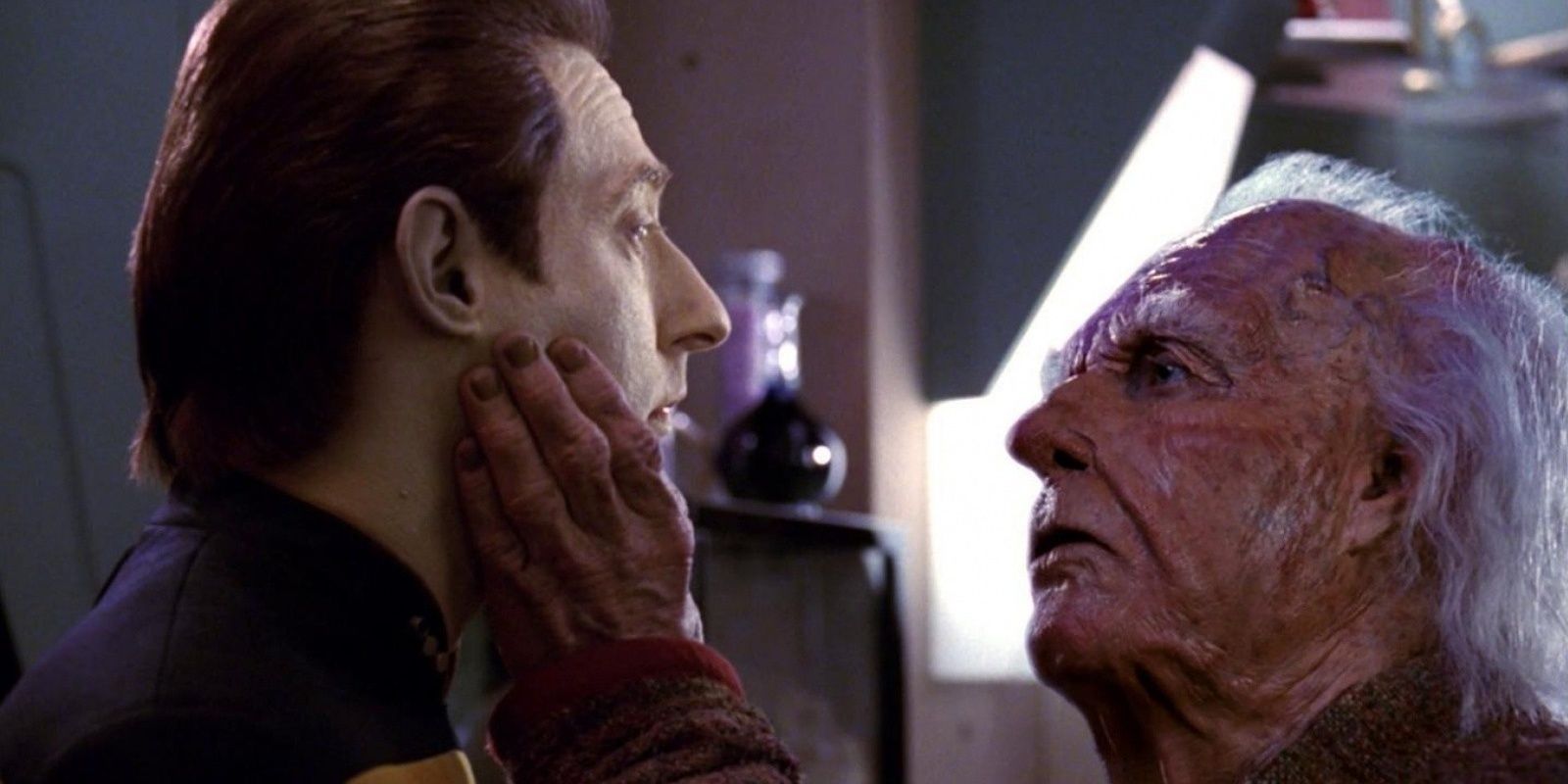Of the biggest sci-fi franchises, Star Trek is probably the most scientific. Every Starfleet expedition is equipped with a top-notch science officer who can explain the various unique elements of the universe. The franchise is known for its clever inventions, which have inspired real-world innovations. Though millions of minds were necessary to reach the space-faring era, a few geniuses stood out.
Star Trek regularly name-checks or visits scientists from contemporary history. Starfleet has mentioned Einstein, Galileo, and many other human innovators. Though their work was crucial, the people of the future rely more heavily on the scientific brilliance of fictional creators.
Zefram Cochrane
The moment a sentient species attains the ability to travel faster than the speed of light, it enters a conversation with the rest of the universe. It's the dream at the end of every civilization. Humans accomplished their first light-speed propulsion in 2061. The scientist responsible for the landmark achievement was an eccentric genius, problematic alcoholic, and 70s rock fan named Zefram Cochrane. Dr. Cochrane was born in the 2030s in Montana. He spent years determining the mathematical formulas to achieve warp travel. Though the product of his efforts would usher in an era of peace, profit was Cochrane's primary motivator. Cochrane led the engineers who developed the warp drive, immediately vaulting humanity into a new generation.
Cochrane developed the first warp-capable human vessel, the Phoenix. Fans have seen the entire process, thanks to the crew of the Enterprise traveling back in time to make it happen. Cochrane was unwilling to make history, realizing the weight of his actions. Thanks to William Riker and Geordi La Forge, he stepped up and piloted the Phoenix on its first voyage. Cochrane coined so many things on that day. From mastering warp technology to the catchphrase "Engage," Cochrane is responsible for much of the Star Trek universe. He also welcomed first contact with the Vulcans after his groundbreaking accomplishment. The franchise even shows fans a reality in which Cochrane failed. Without his influence, the Earth's human population would've been supplanted and assimilated into the Borg collective. There's no competition. Zefram Cochrane is the most important scientist in the Star Trek franchise. However, he's far from the only one.
Emory Erickson
Like Cochrane, Dr. Emory Erickson developed a piece of technology that permanently altered the universe and made the franchise possible. Erickson created the molecular transporter, the subspace device capable of teleporting objects across vast distances. His path through life was much sadder than that of Zefram Cochrane. Erickson became a surrogate father to Starfleet Captain Johnathan Archer after a long friendship with his dad. His connection to Starfleet saved his life a few times. Little of Erickson's invention of the transporter has been depicted. After he developed the traditional model, he attempted to create a sub-quantum transporter. That device would have been a substantial improvement on the original, but it failed. Every volunteer who tested the system disappeared. Erickson's son Quinn was one of the victims. The disaster also left Erickson in a wheelchair.
Dr. Erickson would come to blame himself for his son's apparent death. He spent a decade struggling with the loss. Erickson discovered that Quinn was trapped in subspace. After fifteen years, he lied his way onto Captain Archer's Enterprise NX-01. Erickson boarded the Enterprise while it traveled through the area of subspace that held his son's signal. Erickson finds Quinn's signal and pulls him out of subspace. The moment of triumph doesn't last long. Quinn Erickson dies almost immediately. Dr. Erickson is dismayed, but he reasons it's better to be dead than eternally trapped outside of mortality. Erickson was developed by Manny Coto, who decided that the man who invented the transporter should be celebrated. He's a crucial scientific mind, but that rarely benefits him.
Noonian Soong
Star Trek features several robotic organisms, but the most famous cybernetic beings in the franchise are Soong-type androids. Data, his daughter Lal, Lore, and several other characters come from this design philosophy. Noonian Soong built Data, along with four other androids. He was an outcast, rejected by society for failing to deliver on his promises. While researching in secret, Soong developed an advanced positron brain. Soong worked off of the blueprints of his ancestor, eventually creating androids capable of empathy. His work was unmatched for several decades. Soong created Data, arguably giving him credit for much of his inventions.
Scientists made the Star Trek universe what it is. Faster-than-light travel, teleportation, androids capable of emotion, and many other futuristic developments can be credited to a few brilliant minds. Every science officer contributes to the collective understanding of the universe, but the luckiest, smartest, and bravest change the lives of everyone in it. Star Trek features some of the most engaging scientists in science fiction, though they enjoy very different stories after they've made their grand discoveries.







